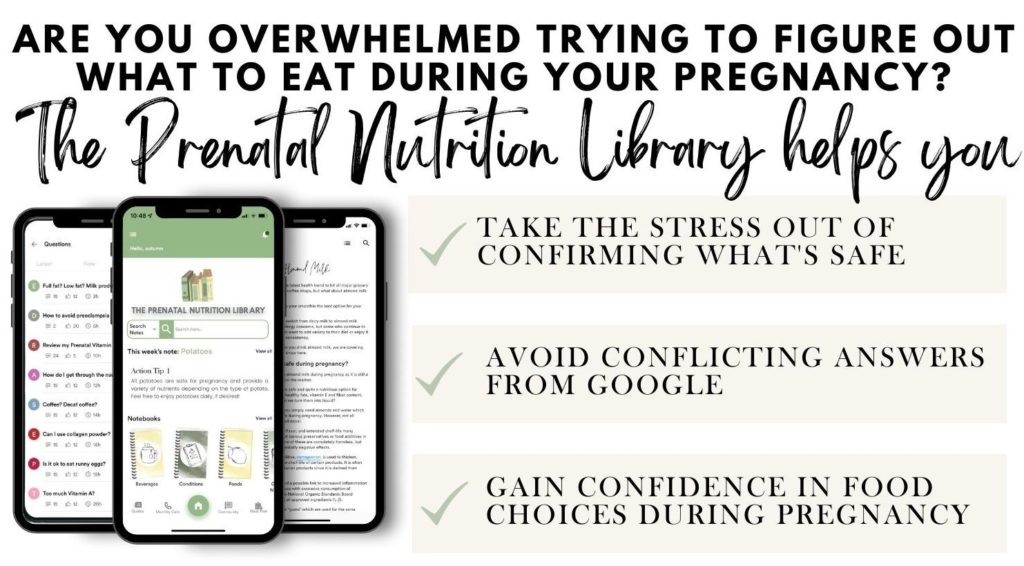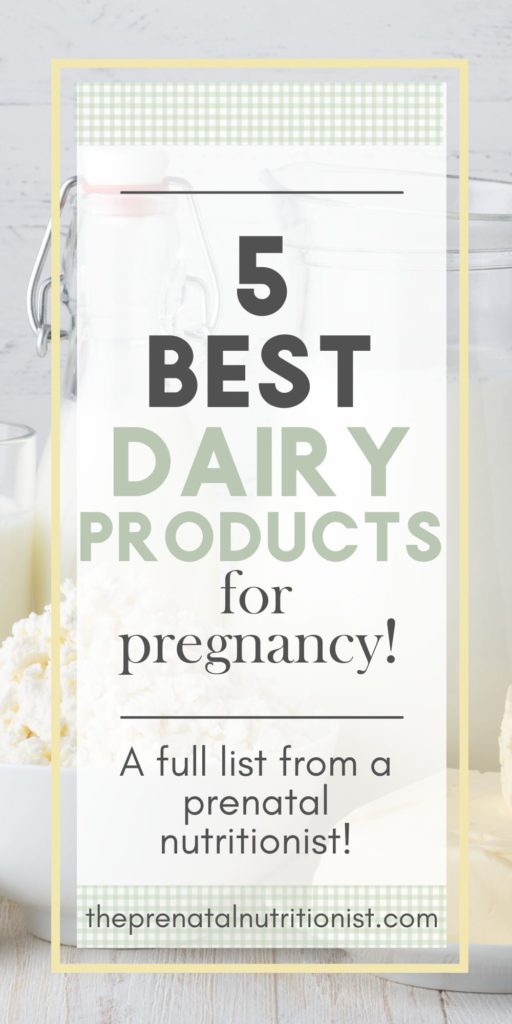
Most expectant mothers are well aware of how important good nutrition is during pregnancy. A healthy, balanced diet is crucial for pregnant women and their unborn babies. Eating various foods, including dairy products, is a good way to get the necessary vitamins and minerals and support strong bones during pregnancy. It also makes it easier to meet daily nutritional requirements and maintain a healthy diet.
Although dairy is not required for a healthy pregnancy, it does offer many benefits to pregnant women. Here is a round-up of the five best dairy products for pregnancy. These all contain several nutrients needed to maintain a healthy pregnancy. If you have a lactose intolerant this list may not be for you, but there are other ways to get the benefits of dairy like adding in leafy greens, healthy fats, vegetables, and a variety of fruits.
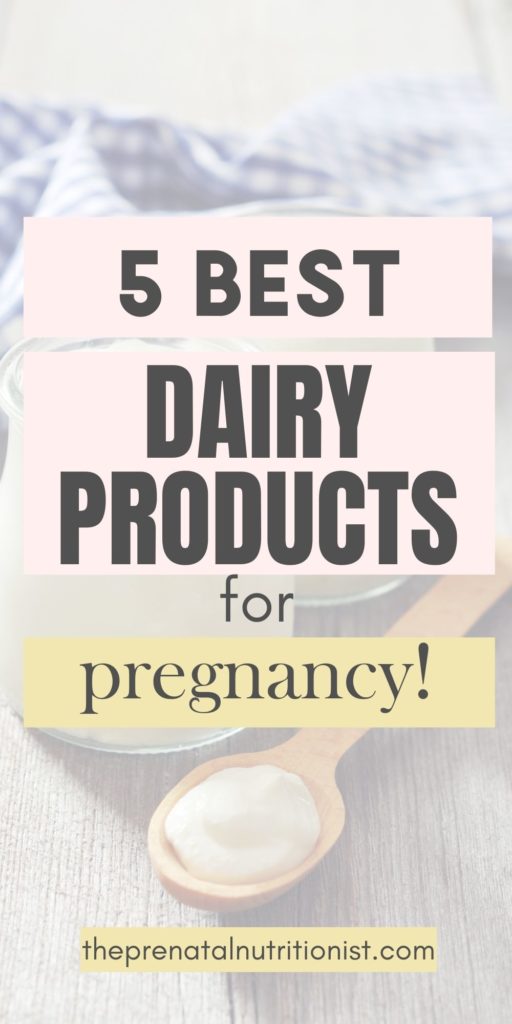
5 Best Dairy Products For Pregnancy
Yogurt
Yogurt contains just as much calcium as milk. It is a source of protein, folate, and iodine. Look for yogurts containing probiotics, or live and active cultures, which can improve gut health, support immune health, and help combat constipation.
There are several different kinds of yogurt, including:
- Cow’s milk yogurt (traditional yogurt)
- Greek yogurt (also made from cow’s milk)
- Australian yogurt
- Icelandic yogurt
- Dairy-free yogurt: made with coconut, cashew, or soy milk
- Kefir: fermented yogurt drink
Plain, whole milk yogurt made from cow’s milk and whole milk plain Greek yogurt contains the most nutrients. These are both great options for pregnancy.
Keep in mind that not all yogurts are created equal. Your best bet is to choose plain varieties over flavored ones. That way, you’ll avoid high amounts of added sugar and customize your yogurt with whatever healthy add-ins you want. If you like sweet yogurt, add a teaspoon of strawberry jam, a tablespoon of almond butter, or a drizzle of honey!
There are countless ways to enjoy yogurt. For a sweet treat, try it with a little bit of honey or fresh fruit. You can add some nuts and seeds for a crunch. Yogurt works great when you use it, like mayonnaise or sour cream in dressings or dips. However, mayo and sour cream are both safe for pregnancy as well!
Full-Fat Milk
You probably already know that milk is a great source of calcium. Just one 8-fluid-ounce glass of full-fat milk contains close to one-third of your daily recommended amount of calcium, which is important for many reasons, including the development of your baby’s teeth and bones.
You might not know that milk is also a great source of vitamin A, vitamin B12, protein, and iodine. Some milk is fortified with vitamin D. Non-dairy, plant-based options like almond and oat milk may be fortified with calcium and vitamin D but are not great sources of protein, fat, and iodine, amongst other B vitamins cow’s milk is rich in.
If you can’t stomach the thought of drinking a glass of milk, there are plenty of other ways to incorporate milk into your diet. You can blend it with fruits and vegetables to make a healthy smoothie. Or, you can pour the mixture into popsicle molds and freeze it to make tasty frozen pops.
Hard and Soft Cheeses
You can also eat dairy via everyone’s favorite, cheese! Because cheese is made from milk, it contains many of the same essential nutrients. Cheese is a great source of calcium, vitamin A, phosphorus, and protein, which help support your baby’s development.
You may have heard the myth that you need to avoid soft cheeses during pregnancy. This is not true. Just look for pasteurized options. Most soft cheese sold in the United States is pasteurized and safe to eat during pregnancy. Check your food labels next time you’re at the grocery store and enjoy.
There are many ways to eat cheese during pregnancy, including all by itself, on sandwiches, wraps, and salads, or mixed into savory dishes.
Cottage Cheese
As long as it’s made with pasteurized milk, it’s safe to eat cottage cheese during pregnancy. Cottage cheese is an excellent way to incorporate dairy products and boost the protein in your pregnancy diet.
Cottage cheese contains high levels of protein, calcium, phosphorus, and vitamin B-12, all important nutrients for pregnant women and their growing babies. Just one cup of whole-milk cottage cheese contains about 28 grams of protein. Many pregnant women are under-consuming protein. Cottage cheese provides a great boost of protein; you can even blend it in your eggs if you want a higher protein breakfast.
You can mix a serving of fresh fruit like pineapple into cottage cheese or blend it into a smoothie for a protein boost.
Kefir
Kefir is a fermented yogurt beverage. The consistency is between milk and yogurt. Kefir is a great dairy product for pregnancy because it is high in protein, probiotics, calcium, potassium, vitamin A, and more. In fact, for some varieties, kefir is a better choice nutritionally than yogurt. Because it has more probiotics, pick kefir up at the grocery store next time if you want to improve your gut health (we all do!).
Kefir can be used in smoothies, as a drink, as a base for sauces, pesto, and more! It is more than worth giving it a try!
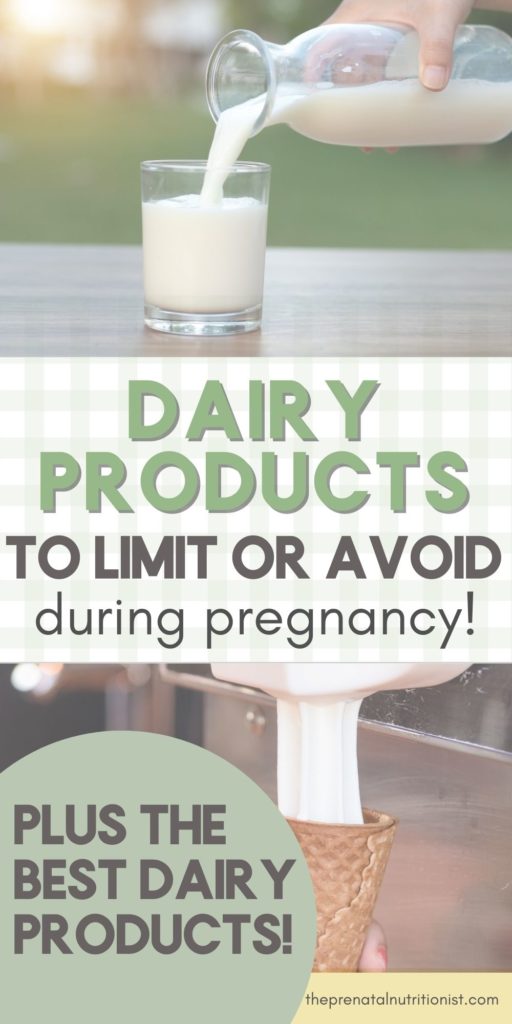
Dairy To Avoid During Pregnancy
As for what you should avoid during pregnancy, some things are pretty obvious. You probably already know drinking alcohol, eating raw shellfish, or consuming unpasteurized raw eggs is best avoided. But other things are not as obvious! Whether for nutrition reasons or because of the increased risk of foodborne illness, these are the dairy products you should avoid (or reduce intake of) while pregnant.
Unpasteurized Dairy Products
Raw milk products, unpasteurized milk, or anything that has unpasteurized milk (and isn’t cooked) in it is recommended to avoid during pregnancy. Unpasteurized dairy products have an increased risk of contamination and the potential to cause foodborne illness, which would put both you and your baby at risk.
Most dairy products sold in the United States are pasteurized. This includes milk, cheese, and yogurt. If you’re shopping at local farmer’s markets or health food stores, you may have to do some more investigating to ensure they are pasteurized.
Low-Fat Dairy
Choosing low-fat dairy products is not “harmful,” and it does not need to be avoided at all costs. With that said, I recommend choosing full-fat (or whole-milk) dairy products as a better nutritional choice for preconception and pregnancy. Research has shown us that full-fat dairy consumption provides more benefits for preconception. Full-fat dairy consumption has been positively linked with ovulation and fertility.
Believe it or not, the fat content is the major difference between full-fat and low-fat dairy products. The amount of protein, carbohydrates, and micronutrients is similar. However, the fat in dairy is important. Fat is needed to absorb fat-soluble vitamins, which are vitamins A, D, E, and K.
Soft Serve Ice Cream
No, I’m not telling you that you shouldn’t eat ice cream during pregnancy. Rather, I’m letting you know that soft-serve ice cream is considered a “higher-risk” food choice from a food safety perspective, so it’s something to be aware of. Soft-serve ice cream itself is safe to eat. However, the machines are notoriously hard to clean and have been linked to causing food-borne illnesses in the past.
If you don’t trust (or know) the place and its cleaning practices, it might be best to skip and opt for another dessert option or store-bought ice cream.
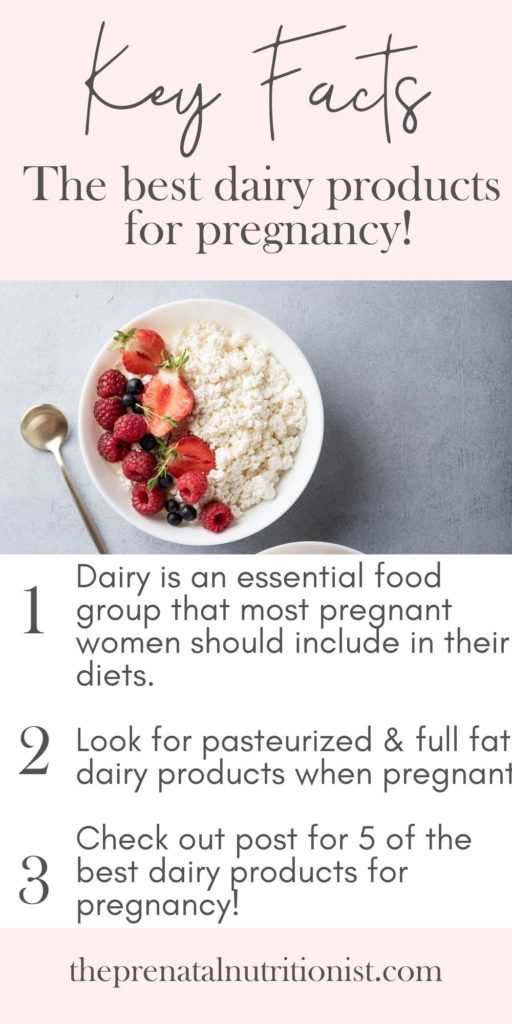
How are you incorporating dairy into your pregnancy diet?
What are some of your favorite ways to incorporate dairy products into your pregnancy diet? Do you have a go-to recipe to share? I’d love to hear from you!
To learn more about what foods you should include in your pregnancy diet and other foods to avoid, join The Prenatal Nutrition Library. It’s the most comprehensive library of prenatal nutrition information available and the first searchable app for food during pregnancy. Download it here!



